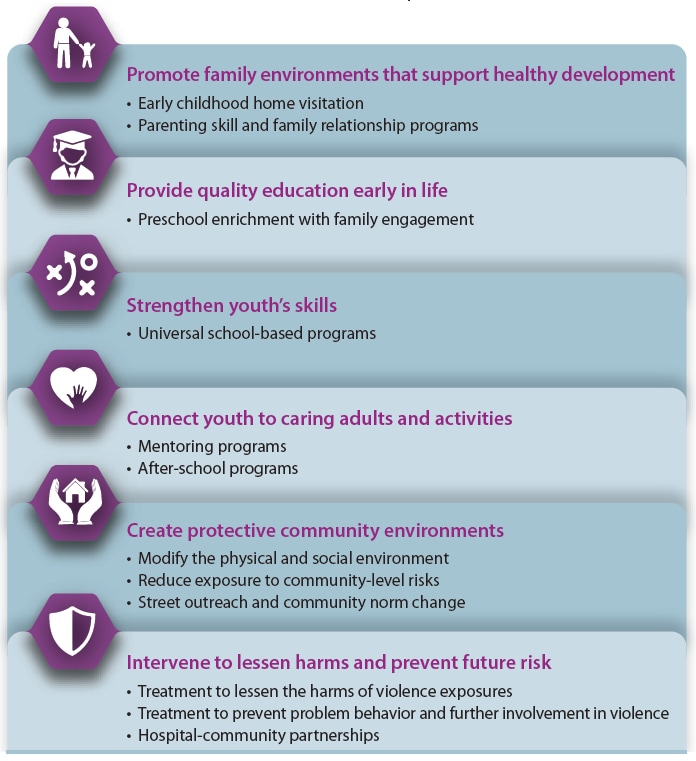Preventing School Violence and Reporting Child Abuse Workshops
Teachers Wear Many Hats
A teacher is an educator, a leader, a friend, and a protector of students in many different ways. I recently learned more about that last role in two workshops that addressed preventing school violence and reporting child abuse. These workshops helped to outline how to identify possible signs of child abuse and a student who is at risk of committing an act of violence, and they demonstrated ways that teachers can respond to these signs. Although these workshops covered topics that were depressing, the instructors really made me feel more comfortable with the reality that I will most likely have to encounter these issues one day.
Preventing School Violence Workshop
 |
| CDC. Preventing School Violence [infographic]. Retrieved from https://www.cdc.gov/violenceprevention/youthviolence/schoolviolence/fastfact.html |
The first workshop I attended was centered around preventing school violence. This is a topic that I am all too familiar with because of the high incidence of acts of school violence since I was in middle school. I went into the workshop eager to learn more about the teacher's role in noticing the causes that drive a student to commit an act of violence and how to prevent that.
The instructor was very knowledgable and made a workshop with such a dark subject seem lighter. He knew the right time to crack a joke or tell a personal story about what he does in his own classroom (he teaches at Baldwin High School), and that really helped me feel that I could trust his advice.
Reporting Child Abuse Workshop
The second workshop I attended was centered around recognizing and reporting child abuse. Teachers are considered mandated reporters because they must formally report child abuse if it comes to their attention. This was a topic that I really did not know much about, but I can genuinely say that I understand the role that I will be obligated to take on as a teacher.
The instructor was an experienced social worker who worked in the CPS field for four years. She currently trains new CPS agents, so it was clear to me that she knew exactly what she was talking about. The instructor explained everything very thoroughly and made the workshop very engaging with activities and discussion.
 |
| Georgia State University. Mandated Reporter [infographic]. Retrieved from https://abuse.publichealth.gsu.edu/free-online-mandated-reporting/ |
Since I went into this workshop not knowing anything about the teacher's role as a mandated reporter, I definitely absorbed a lot of information in this lesson. Some of the most important topics we discussed were the laws that outlined what a mandated reporter is, when a mandated reporter must send in a report, and what can happen if a mandated reporter fails to report an incident. We were also able to view a video that documented a success story of CPS intervention, pictures of some common abuse-caused injuries, and a video of a real phone call to a reporting center. This was a class that definitely benefitted from using visuals because it allowed us to really be able to grasp the topic at hand.
This workshop can be related to an article called Friday Report Cards May Raise Risk of Child Abuse, Says Study. The article boldly outlines a study that found "a nearly fourfold jump in verified physical child-abuse cases on Saturdays after report cards were released the previous Friday." The researchers found that mid-week report cards did not increase confirmed child abuse cases, which suggests that the timing of these report cards can have a significant impact on punishment and abuse. By reviewing studies such as this one, teachers and administrators can make a conscious decision to only release report cards during the week, which can perhaps lower the possibility of their students showing up on Monday with bruises and welts.
CDC. Preventing School Violence [infographic]. Retrieved from https://www.cdc.gov/violenceprevention/youthviolence/schoolviolence/fastfact.html
Georgia State University. Mandated Reporter [infographic]. Retrieved from https://abuse.publichealth.gsu.edu/free-online-mandated-reporting/
CDC. Preventing School Violence [infographic]. Retrieved from https://www.cdc.gov/violenceprevention/youthviolence/schoolviolence/fastfact.html
Georgia State University. Mandated Reporter [infographic]. Retrieved from https://abuse.publichealth.gsu.edu/free-online-mandated-reporting/
Sparks, S. D. (2019, January 2). Friday Report Cards May Raise Risk of Child Abuse, Says Study. Retrieved from https://blogs.edweek.org/edweek/inside-school-
research/2018/12/weekend_report_cards_child_abuse_risk.html.
research/2018/12/weekend_report_cards_child_abuse_risk.html.
Hey Angela,
ReplyDeleteI was not able to attend a workshop this semester so I found your post to be very insightful! It seems like you enjoyed both workshops especially the one about preventing school violence since your instructor was so great. It is interesting that one of the causes of school violence could be outside issues coming from the home. I feel as though that's not something teachers, or people, in general think about when it pertains to kids being violent in school. I did know that teachers had to report any child abuse concerns they had but I still found this portion of your blog helpful. The videos and images provided by the instructor was a good idea to me because that brought it to life and probably stuck more to attendees than just words.